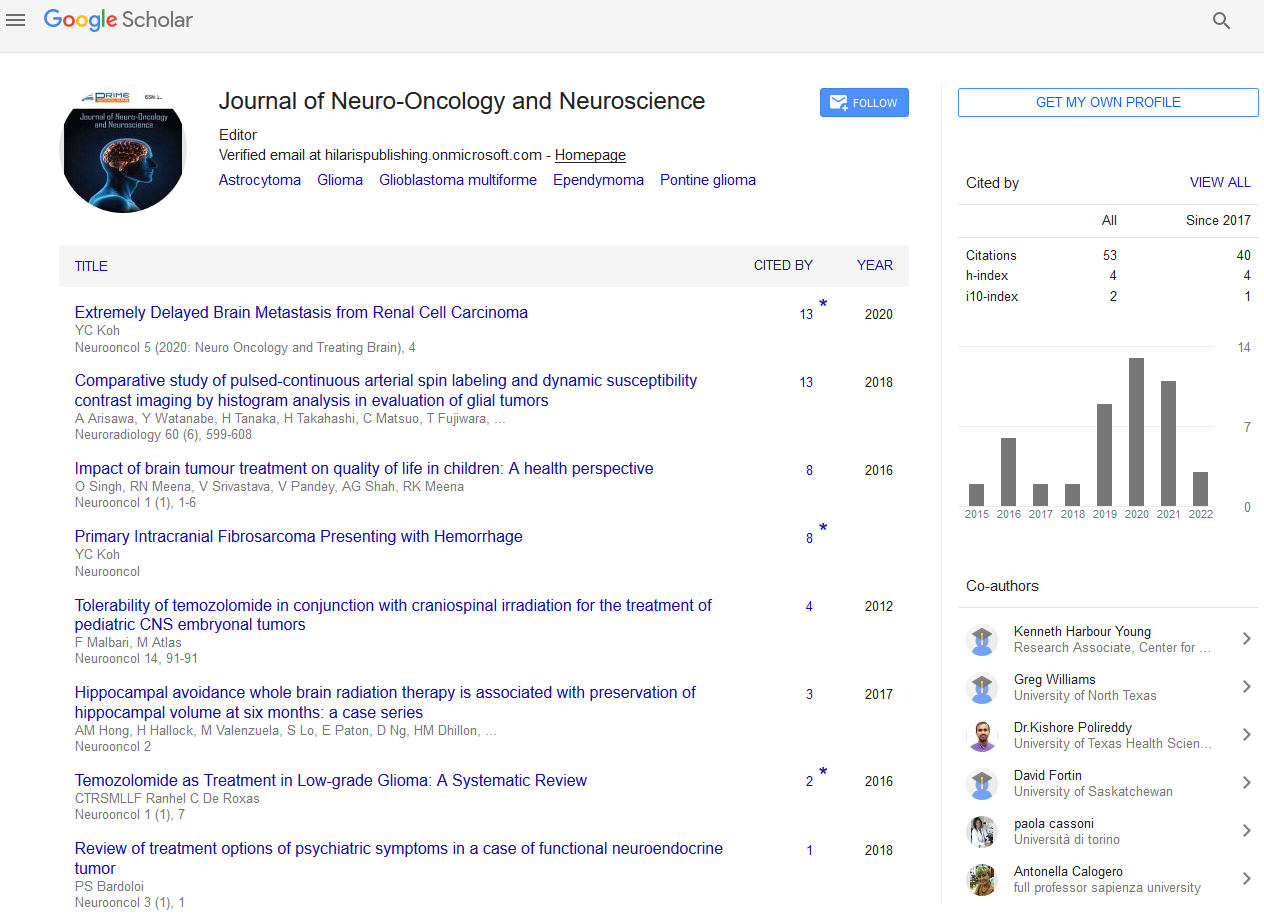Opinion - (2023) Volume 8, Issue 1
Understanding Neurological Diseases and Unraveling the Complexity of the Human Brain
Kumar Suman*
Department of Pathology, Vall d’Hebron University Hospital, Spain
*Correspondence:
Kumar Suman,
Department of Pathology, Vall d’Hebron University Hospital,
Spain,
Email:
Received: 02-Jan-2023, Manuscript No. IPJNO-23-16548;
Editor assigned: 04-Jan-2023, Pre QC No. IPJNO-23-16548 (PQ) ;
Reviewed: 18-Jan-2023, QC No. IPJNO-23-16548;
Revised: 23-Jan-2023, Manuscript No. IPJNO-23-16548 (R) ;
Published:
30-Jan-2023, DOI: 10.21767/2572-0376.8.1.010
Introduction
The human brain is an intricate and remarkable organ that controls
our thoughts, emotions, and actions. However, it is also
vulnerable to a wide range of disorders known as neurological
diseases. These conditions can significantly impact a person’s
quality of life, affecting their cognitive abilities, motor functions,
and even their very sense of self. In this article, we delve
into the world of neurological diseases, exploring their causes,
symptoms, and current treatment options. By shedding light
on these complex conditions, we aim to raise awareness and
foster a better understanding of the challenges faced by individuals
living with neurological disorders. Neurological diseases
encompass a diverse range of conditions that affect the central
nervous system, including the brain, spinal cord, and nerves.
These disorders can be classified into several categories, such
as neurodegenerative diseases (e.g., Alzheimer’s disease, Parkinson’s
disease), cerebrovascular diseases (e.g., strokes), autoimmune
diseases (e.g., multiple sclerosis), and genetic disorders
(e.g., Huntington’s disease). One of the most well-known
and prevalent neurological diseases is Alzheimer’s disease,
which primarily affects memory and cognitive functions.
Description
Parkinson’s disease, on the other hand, is characterized by
the loss of dopamine-producing cells in the brain, leading to
tremors, rigidity, and impaired motor skills. Multiple sclerosis
is an autoimmune disease that results in the immune system
attacking the protective covering of nerve fibers, causing a
wide range of symptoms, including fatigue, muscle weakness,
and difficulties with coordination. The causes of neurological
diseases can be multifactorial, involving a complex interplay
of genetic, environmental, and lifestyle factors. Some conditions,
like Alzheimer’s and Parkinson’s, have a significant genetic
component, with specific gene mutations or variations increasing
the risk of developing the disease. Other neurological
disorders, such as strokes, can be triggered by a combination
of genetic predisposition and modifiable risk factors, including
hypertension, smoking, and an unhealthy diet. Infections,
such as meningitis or encephalitis, can also lead to neurological
damage. Additionally, certain autoimmune diseases, like lupus
or rheumatoid arthritis, may affect the central nervous system
and cause neurological symptoms. Traumatic brain injuries, exposure
to toxins or chemicals, and chronic stress are further
examples of factors that can contribute to the development of
neurological disorders. The symptoms of neurological diseases
vary widely depending on the specific condition and the area of
the nervous system affected.
Conclusion
While many neurological diseases are chronic and currently
have no cure, several treatment options and management
strategies aim to alleviate symptoms, slow down disease progression,
and improve the quality of life for affected individuals.
Treatment approaches may include medication to manage
symptoms and prevent further deterioration, physical therapy
to improve mobility and muscle strength, speech therapy to
address communication difficulties, and occupational therapy
to enhance daily functioning. In recent years, research into innovative
therapies, such as deep brain stimulation and gene
therapy, has shown promising results for certain neurological
disorders. Additionally, lifestyle modifications, including regular
exercise, a healthy diet, and adequate sleep, can play a
crucial role in managing symptoms and optimizing overall brain
health. Neurological diseases present complex challenges that
impact millions of individuals worldwide.
Citation: Suman K (2023) Understanding Neurological Diseases and Unraveling the Complexity of the Human Brain. Neurooncol.8: 010.
Copyright: © 2023 Suman K. This is an open-access article distributed under the terms of the Creative Commons Attribution License, which permits unrestricted use, distribution, and reproduction in any medium, provided the original author and source are credited.

